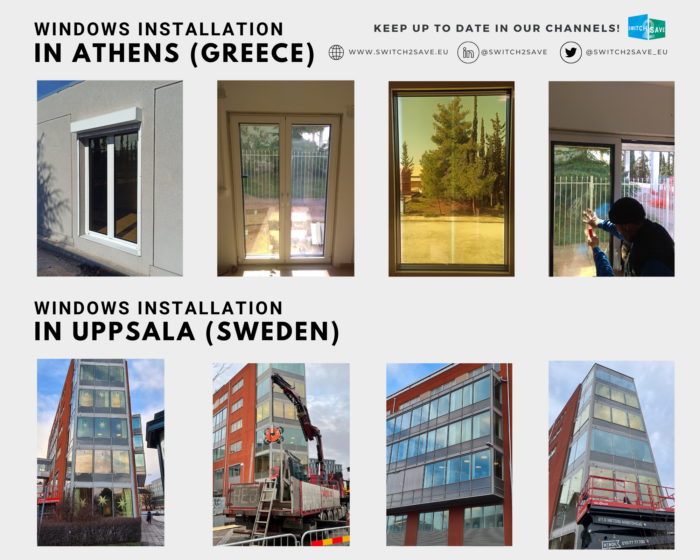Switch2Save smart windows now being installed in Sweden and Greece
Lightweight, switchable and smart glass technologies can significantly improve the energy management of buildings with large-area windows and glass facades and contribute significantly to reducing energy consumption for heating or cooling. Improving the availability and cost efficiency of such smart glasses and the corresponding manufacturing processes is the declared goal of the EU-funded Switch2Save joint project. The project partners are now on the finish line and have installed the first electrochromic insulating glass units to demonstrate and test the potential energy savings in a Swedish office building as well as in the demonstration site in Athens.
The project led by Fraunhofer FEP was launched in 2019 and in the meantime, prototypes of novel switchable windows have been developed. These windows can be retrofitted in existing buildings to support the energy efficiency of heating and air conditioning systems. The new solution is characterized by its ability to integrate different types of optically variable smart coatings into a building envelope. The partners Chromogenics AB from Sweden and the Fraunhofer Institute for Silicate Research ISC have developed novel electrochromic coatings for this purpose. These enable a window to be switched between a dark and a clear state. Fraunhofer FEP and the University of West Bohemia Pilsen have realized a roll-to-roll deposition process for thermochromic vanadium oxide. This material leads to a self-sufficient regulation of the transmitted thermal radiation depending on the outside temperature. The use of roll-to-roll technology also supports the development of cost-efficient manufacturing. Both types of these smart coatings can be produced on lightweight, flexible substrates such as ultra-thin glass and PET films.
Two buildings with different climatic conditions in Greece and Sweden were selected for the project. In Sweden, in the Vasakronan owned Rental Office Building in Uppsala (VAS), the Switch2Save consortium have already replaced 50 windows and 200 m² glass façade area with the smartglass solution and is performing a full “before-after” comparison of the energy demand. In Greece, the installation is at this moment done at the test site at National Technical University of Athens. Later, it would be installed in late spring in the General State Hospital of Nikaia Agios Panteleimon (NHOSP). All the findings will accelerate the widespread implementation of energy smart glass and significantly contribute to the goal of a CO2-neutral building stock in the EU before 2050.

As the project will finish at the end of September 2023, its results and real time installations will be presented during a final workshop, that will take place on September 21st in Athens, Greece.
Follow the LinkedIn project page to keep up to date!
Visit our website to learn more about our purpose!